
Online communities like Quora and Reddit are bursting with engaged audiences, all conveniently segmented into their own interests and niches. They’re excellent places to discover relevant leads and generate sales.
Unfortunately, other less discriminating marketers have also realized this. As a result, these communities are wary of marketers trying to hock their wares. Online community members won’t hesitate to gather their pitchforks and torches if they suspect anyone of using their space for business gain or advertisement.
As long as you don’t spam irrelevant topics and unwelcome messages, online communities are ripe for lead generation. So, how do you truly provide value to these communities while helping your business revenue at the same time?
Note: This article is written for individuals who want to participate in online communities to generate business leads, not if you would like to start your own online community as a lead generation tool.
4 Reasons to use online communities for smart lead generation
Online communities aren’t just great for procrastinating or getting answers. They’re an excellent lead generation platform, thanks to niche audience, unique insights, SEO benefits, and more.
1) Get access to a self-bucketed niche
Even if you’ve got a unique product, there’s a community for it. Online communities allow people to connect over any interests, no matter how rare. This gives you a ready-made pool of relevant people to connect with and put your brand in front of.
Even more helpful is the fact that the people in this group have self-bucketed themselves, meaning you don’t have to go through the work of figuring out whether someone is interested in a product or service (such as yours) that can help them.
Below are some of the many tailored Slack communities out there, via Slofile.
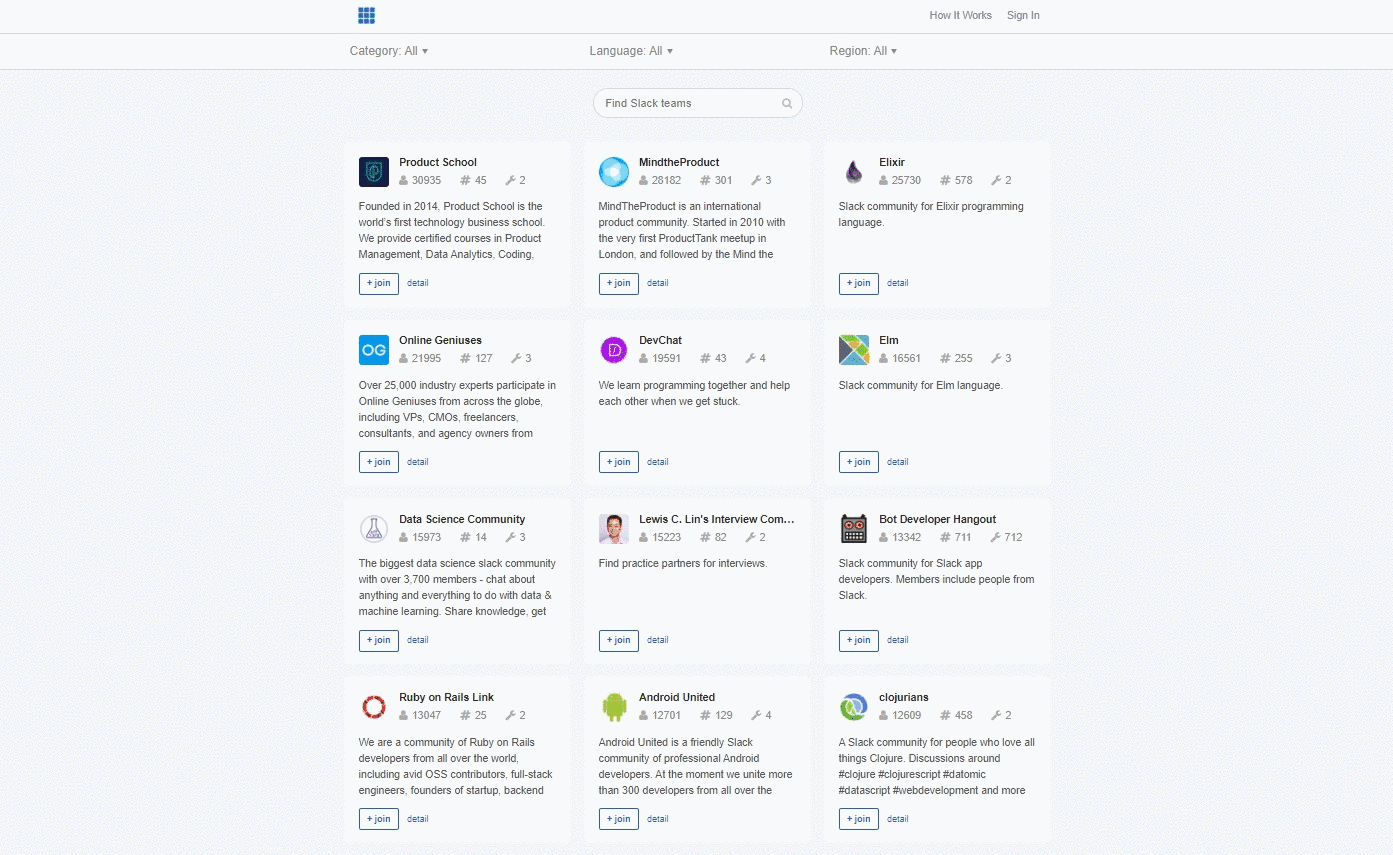
2) Gain unique insights from your target audience
The value of an online community is that members can ask questions, discuss answers, and share opinions. Those are all useful audience insights for your marketing, sales, and even product teams.
For example, check out the comments and engagement on this GrowthHackers post on Magento SEO (which is apparently a nightmare based on the comments).
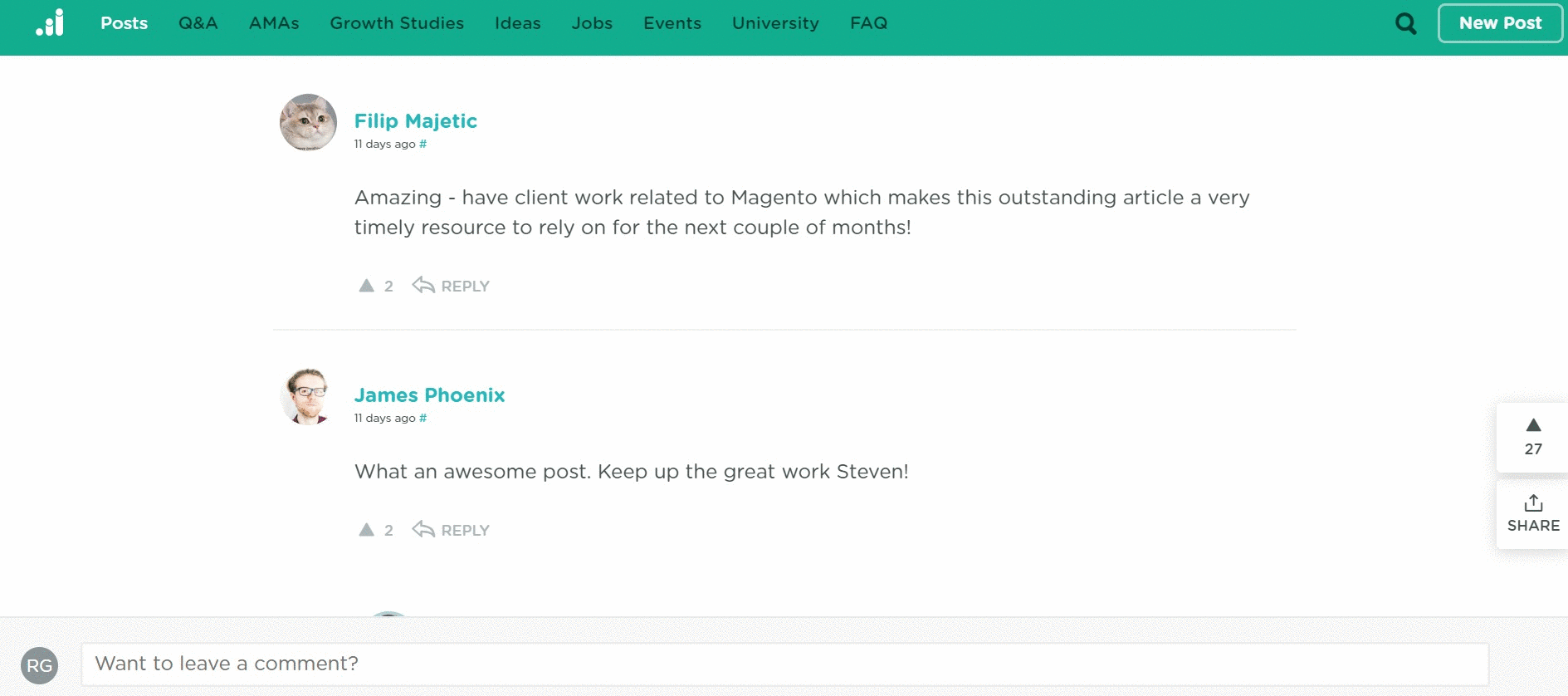
Using online communities to ask questions and gather feedback can help strengthen your position and provide some direction for your growth. Take note of their interests, likes, and pain points.
3) Boost your SEO while you’re at it
Most online communities operate with no-follow links, so you don’t get the backlink juice like you do with guest blog posts. However, that doesn’t mean you won’t get any SEO benefits from being an active member and contributor of an online community.
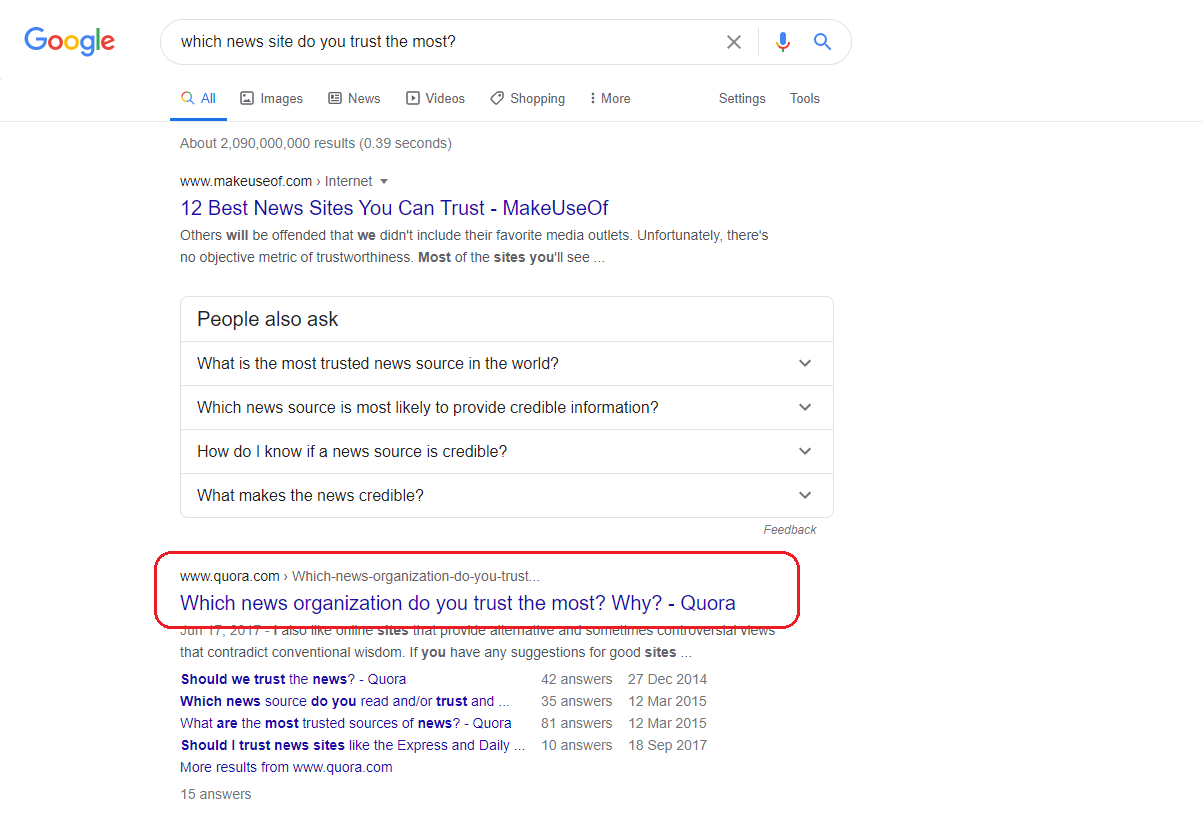
Many online community posts rank highly of their own accord, giving you a first-class ticket to the first page of Google, even if your own website isn’t there. Having a brand presence without any links is better than not even being part of the conversation!
4) Access an active community
Contrary to popular belief, people don’t hang out in their inboxes. There are more than 370,000 daily posts on Reddit, and 300 million monthly active users on Quora, showing that online communities are where people hang out online and engage with each other.
That makes an excellent place for your content to get seen, shared, and talked about.
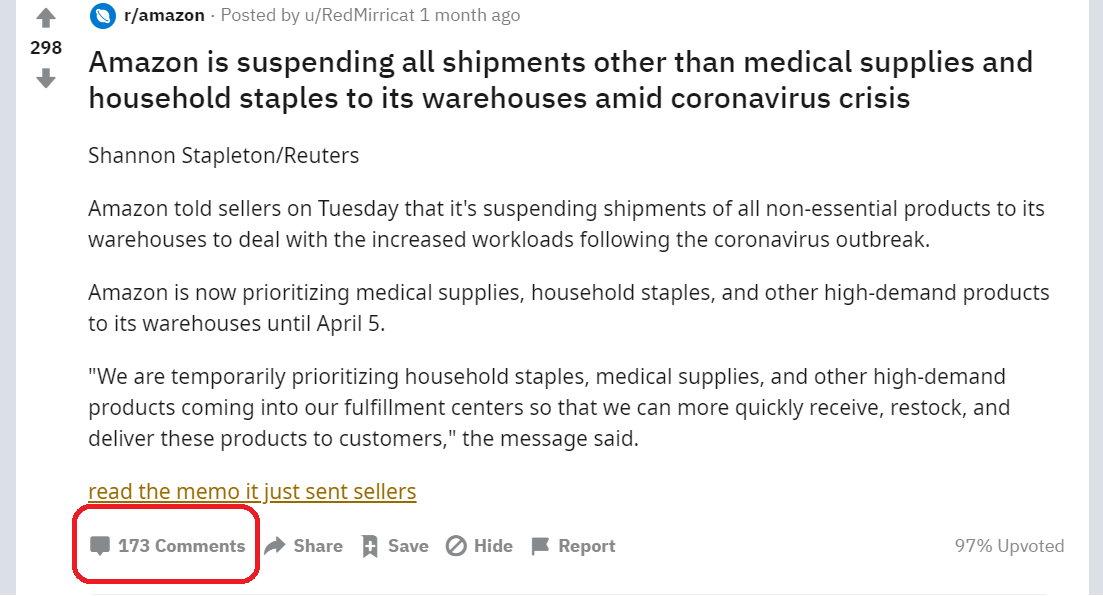
5) Stand out without ads
Paid ads, email marketing, and social media are all excellent ways to generate leads and sales. But many other marketers are exhausting those channels, making them a chore for consumers to be on. Ads are ignored, inboxes are full, and social media is noisy. Online communities allow you to stand out somewhere that consumers want to be.

8 Tips for generating leads in online communities
While online communities are the ideal platform for connecting with your audience and generating leads, they can be challenging to navigate.
People congregate in communities because they’re a safe, relaxed, and neutral (usually) platform to connect with like-minded people. The are not a place for advertising, marketing, or selling.
So how do you generate leads without advertising, marketing, or selling?
1. Pick the right community
First, it’s important to pick a platform that’s relevant to your business and the content you can share. Posting about your latest line of puppy chow on a subreddit dedicated to cat owners is going to make you look silly and could lead to a ban.
A couple of communities to look into include:
- Quora is a question and answer platform where users can post questions and answers about pretty much anything. This is great for businesses with a lot of knowledge to share and whose audience has a lot of specific questions to ask.
- Reddit is a network of community forums where users can post questions, insights, or discussions about specific interests. This is useful for businesses that want to establish brand authority and create customer relationships.
- GrowthHackers is a community-based blog, where members can create content for other members to read, comment on, and vote on. This community is focused on growth hacking and marketing content, which is great for high-performing marketing departments who want to share tips or gain brand exposure.
- Slack is a project communication tool that has many open communities for different topics and interests. This is great for finding niche audiences and sharing actionable tips and information.
- LinkedIn is a social networking tool that also has a number of professional groups and communities. This is a good platform for B2B businesses and experts.
2. Be helpful
“Providing value” is a phrase that’s been beaten to death within these communities, but for good reason. Being helpful makes you a valued member of the community, and demonstrates that you’re contributing for a reason other than business gain.
On the other hand, trying to push a product or service (especially your product or service) signals that you’ve got ulterior motives for being part of the community.

You should use your business’ expertise to provide help that is actionable, relevant, and useful. This not only makes you most trustworthy, but also ties in your company via your credentials. This can help community members view your brand more positively and think of you when the need arises.
Depending on the community, you can be helpful by answering questions, providing advice, supporting members, or provoking interesting discussions.
3. Be human
Communities are made of people from different backgrounds and many walks of life. Ditch the business jargon and communicate real-life advice, injecting your own personality and voice. If you talk about business all the time, you’ll sound like a bot. Most online communities value a sense of camaraderie that helps every member feel more at home.
4. Be transparent
Authenticity is crucial for being a part of a community. No one likes being deceived, and if you talk about your products or services, people could get suspicious about any affiliates you might be hiding.
Avoid misleading anyone by being transparent about your situation. You could include your business name in your username or profile, or add a disclaimer after relevant posts.
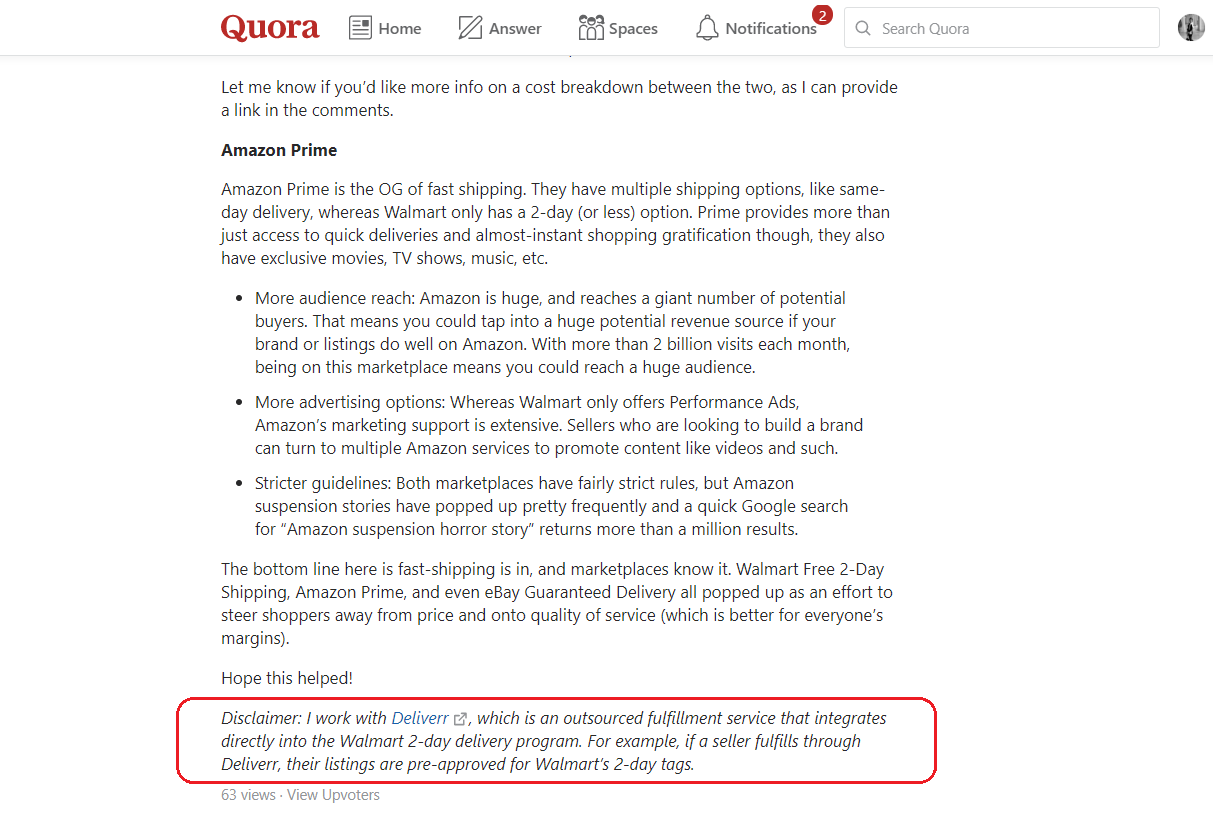
Transparency doesn’t mean that you can’t talk about your products or services where relevant, but you should be open and honest about it when you do. This protects your business reputation while also increasing trust in your comments.
Tip: Add your website URL to your bio. It’s an acceptable way to showcase your business, credentials, and it makes it easy for curious members to visit your website. If you have more than one website, use the most relevant. I usually use my own website unless I’m joining a community specifically on behalf of a company, since my website discloses my work history.
5. Ask questions
Once you’ve established yourself as a helpful, honest member of the community, you can start asking questions yourself. Your questions should encourage engagement and can even net you some audience insights and feedback.
If you intend to use any of this information to help you improve your products or services, and generate extra leads, don’t forget to be transparent about it. You can even provide a follow-up comment or edit to your question mentioning how your company used the information everyone sent your way.
6. Address complaints
Online communities are open forums where people can post about honest, and sometimes negative, experiences with your brand. Do not avoid these posts.
Instead, address them directly. Apologize for the bad experience, offer to put them in touch with someone to help resolve the issue, and send the feedback and information to your relevant teams.
A negative post alone can damage your brand reputation. A negative post followed by an apologetic, helpful, and actionable comment can enhance your brand reputation and generate more leads.
7. Be consistent
No one is going to appreciate a surge of activity from you every time you have a new product release. Consistency is key for establishing trust, protecting your reputation, and being able to talk about your business every once and a while.
Create relevant alerts for each community, and schedule time daily or weekly to go in and dish out some help.
8. Prioritize usefulness over selling
This tip might seem obvious in theory, but it’s difficult to execute in practice, especially when presenting yourself as a business and thought-leader. Read any post that mentions your own company out loud, and if it sounds sales-y, rewrite it. Remember, it’s okay to answer a few questions relating to your company without plugging it in!
Online communities aren’t a marketing channel, or a place where you can get fast and easy leads. However, by continuously and authentically providing helpful and useful information, you can establish yourself (and by association your business) as a trustworthy voice in the space.